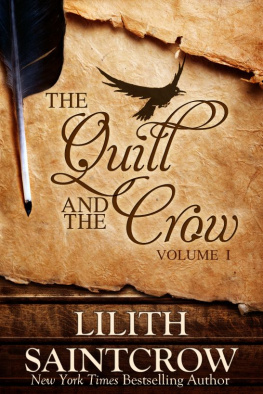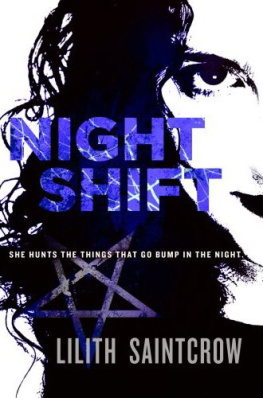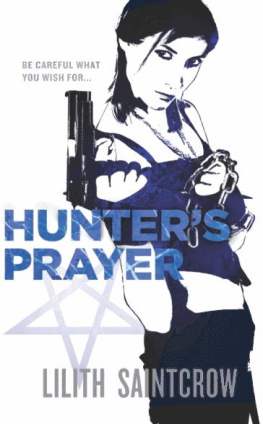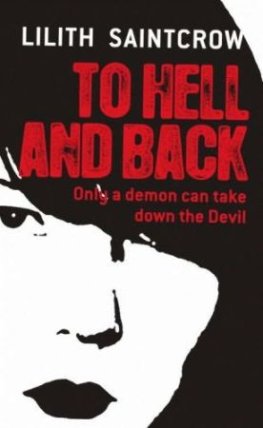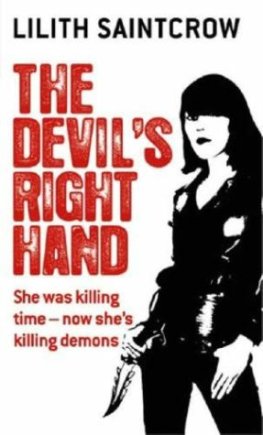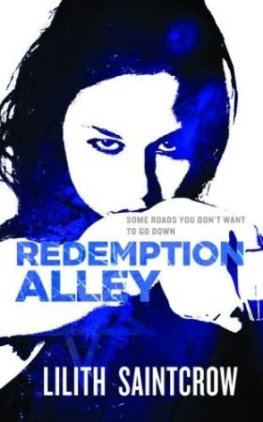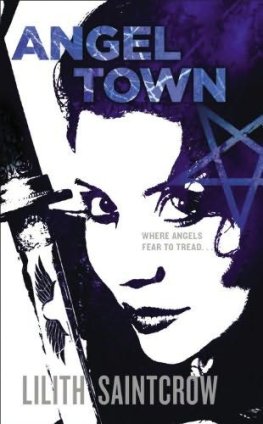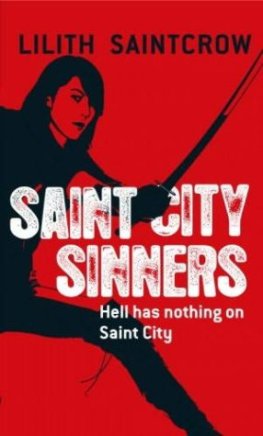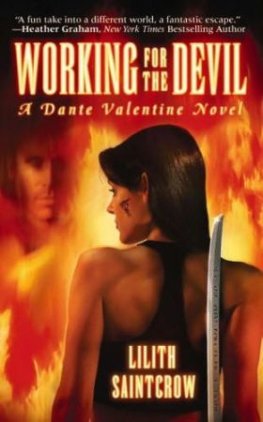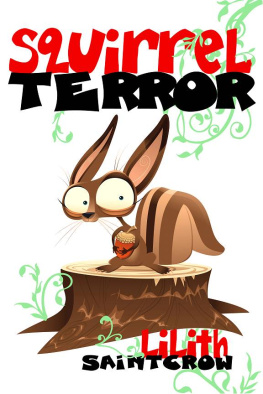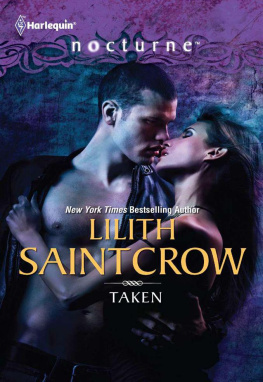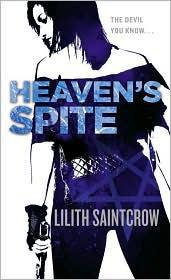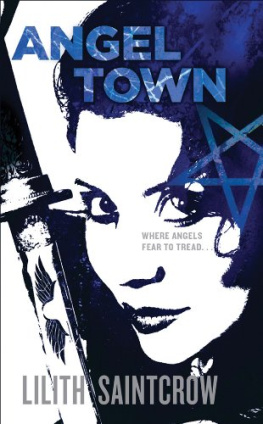The Quill and the Crow
Volume I
Collected Essays 2006 2008
Lilith Saintcrow
The Quill and the Crow Volume I
Copyright 2006 2013 by Lilith Saintcrow
ALL RIGHTS RESERVED.
Cover Art 2013 by Skyla Dawn Cameron
First Edition: December 2013
SMASHWORDS EDITION
All rights reserved underthe International and Pan-American Copyright Conventions. No partof this book may be reproduced or transmitted in any form or by anymeans, electronic or mechanical including photocopying, recording,or by any information storage and retrieval system, withoutpermission in writing from the author.
The unauthorizedreproduction or distribution of this or any copyrighted work isillegal. Authors are paid on a per-purchase basis. Any use of thisfile beyond the rights stated above constitutes theft of theauthors earnings. File sharing is an international crime,prosecuted by the United States Department of Justice Division ofCyber Crimes, in partnership with Interpol. Criminal copyrightinfringement, including infringement without monetary gain, ispunishable by seizure of computers, up to five years in federalprison and a fine of $250,000 per reported instance. Pleasepurchase only authorized electronic or print editions and do notparticipate in or encourage the electronic piracy of copyrightedmaterial.
Your support of the authorsrights and livelihood is appreciated.
Introduction
I have long made no secretof considering most books on writing useless. (The exceptions, ofcourse, are Strunk & Whites Elementsof Style and Stephen Kings On Writing , both ofwhich are very low on bullshit.) Since I am about to inflict acollection of essays about that very subject on the world at large,I might as well explain my decision.
I dislike books on writing for thesame reason I dislike self-help books: because people mistake thework of reading them for the actual work one must do to get betterat writing, or better at dealing with yourself and your foibles.The ersatz jolt of advice wears off after a while, leaving thereader in exactly the same place, and they go searching for anotherhigh. Like the diet industry, if there was ever a magic formula,the entire edifice would tank overnight and several people would beout of jobs.
Why am I doing this? Simple. Ive beenasked by Readers and fellow writers to collect these essays fortheir reference. If it reaches beyond that small audience, pleasebe warned: there are no goddamn shortcuts, dont mistake the effortof reading this for the real work.
Which is writing .
Oh yeah, people say whenI tell them what I do for a living, I always meant to write abook. Damn near every jackass who was taught their ABCs in gradeschool thinks they can type the next GreatNovel/Memoir/Navel-Gazing Guide/whatever. Just sit in a chair andtype, its simple, right?
Yeah. Just like vomiting. Very simple,but the trick is hitting the receptacle meant to flush it tidilyaway.
Most of it is simple ignoranceand theslew of everyone can self-publish! doesnt help dispel the myththat all you have to do is get drunk and spew words at whateverbowl is handy. Writing every day wont make you Shakespeare, justlike practicing the piano wont make you Chopin. You will, however,end up the best piano player (or the most productive writer) aroundfor more than a few country miles.
My advice, posted on myblog for years, is aimed at those who want to make a living writing. There are noguarantees, but producing a quality product over and over againwill eventually find you an audience. Unfortunately, thats onlythe first step. After youve figured out how to produce qualitywriting, theres getting edited, following submission guidelines,contract negotiations (you should get an agent, as CaitlinKittredge once memorably said, because you can literally lose countof how many ways there are to get screwed without one) and waitingto receive said contracts, copyediting, proofing, cover art, andonce the damn thing is on the shelves, youre still not done.Because theres reviews and marketing to deal with, and in betweenall that, you still have to produce quality work.
You still have to sit down, over andover again, and do the work, even when sometimes you dont feellike it.
A writer writes . Its amazing howoften this simple fact is overlooked. Plenty of people callthemselves writers when they maybe open up the filefor the same(unfinished) book theyve been working on for multiple yearseverycouple of months. Plenty of people who fritter away their energy onbuilding a platform call themselves writers without producingjackshit. I could go on and on with the taxonomy of SpeshulSnoflakes, but what would be the point?
A writer writes. Period.
A writer who wants to improve writesregularly. Getting into the habit of discipline is hard, fallingout of it is easy. Writing every day for twenty minutes (or a setnumber of words) wont automatically get you published, but it willget you and your craft a lot closer to that goal.
I have been pilloried a few times forsaying I believe a writer should write every day. Of course therewill be days when you cant. Illness, accident, life all get in theway. Some professionals get by with long periods of inactivity, buttheyre exceptions rather than the rule. Good on them, but Im notconcerned with them. Yes, I think a writer should write every day.Period. No, I dont think Im wrong. Yes, youre entitled to yourown opinion. Have at it.
Some of my advice wont work for you.There are many different ways up the mountain, of course. Theseposts, usually sparked by questions from Readers or fellow writers,are just signposts. Your chances of getting up the damn mountainare a lot better if you know how someone else survived, and atleast listen to how they got there.
Of course all this goes for gettingpublished, too. There is a healthy dose of luck involved in gettingpublished, be it with trad or small-press or what-have-you. Thebest you can do is produce a quality product and maximize yourchanges, so that sooner or later when Opportunity knocks, you cantear open the door, brain him, and drag him inside.
Chance favoring the prepared mind, andall that.
Lastly, theres a lot ofself-publishing out there. There is very little quality control;consequently, most self-publishing is dreck. Getting a good editor,how to tell a good editor from a bad one, what quality control youneed for your work, will maximize your chances of having aself-published book that actually sells .
There is no shortcut, there never was.All I can offer are these signposts, in the hope that theyll beuseful.
The Use of Pain
January 5, 2006
I am in moderate pain from yesterday(which seems to have been the worst day yet in terms of stiffnesspain from the accident in December) and I have pulled a few tailstoday, as well as unloaded the dishwasher. Now, after having takenmy muscle relaxants, I am ready to wax pontifical.
I read a wonderful postabout canon today by the fabulous Sarah Monette[ ]. Any time Istart hearing canon or tradition my hackles rise, myfascination with classical antiquity notwithstanding. Tradition andcanon seem to me to be the best way to strangle new art, or trulysocially-relevant art (think Sinclairs The Jungle ). But then I have to yankmyself up short and remind myself that it is merely my contrarystreak speaking.
DH: Youre a contrarian.
Me: (in injured tones) Iam not!
To put my thinking concisely: if youread as well as write, you cannot hope but be influenced by thecanon and the social/cultural atmosphere youre raised in/swimmingin/living in. Canon exists to give us a point of reference, as thepost on canon points out. Communities of people who read the samethings and meet to hash out one point or another are as old ascivilization. (Im sure there were poets in Sumerian times who gottogether to hash and cut. And what is religious epic poetry if notthe earliest form of fanfic?)
Next page
